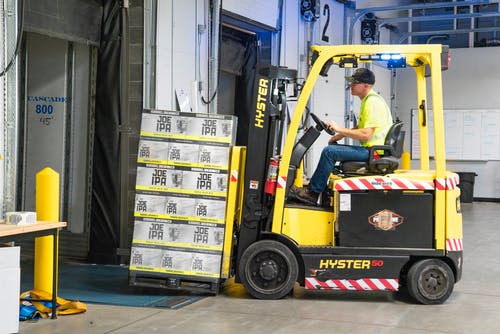You can transport hazardous substances in Canada if you are informed about the law and stay safe. In general, it is illegal to transport dangerous materials in your private vehicle, with some exceptions.
Like reefer transport or other common goods shipping, Canada follows international UN transportation standards for shipping hazardous materials worldwide. Even though some restrictions may vary from country to country, similar principles apply when transporting these types of products.
What Are Hazardous Materials?
Also called HAZMATS, hazardous materials are products that can be dangerous or even fatal in certain quantities. A hazardous material is limited to explosive or combustible items and includes items like corrosive oxidizers and poisons.
Hazardous materials are commonly transported worldwide in big trucks, special trailers, and ships. This allows for large quantities to be moved at once, so it makes sense that it is illegal or impractical to carry hazardous materials in smaller vehicles.
For example, transporting hazardous substances in your private car may seem like a great way to get rid of items you no longer need. However, transportation is much more complicated than that. Transporting hazardous material by car means having proper cargo insurance, training on how to handle these products safely, knowing what they are, making sure your vehicle meets all necessary safety standards, and even having additional equipment installed. Go to this page to learn how to transport HAZMATS using trucking companies.
Examples of HAZMATS
- Gasoline
- Diesel
- Propane tanks
- Chemicals
- Paints
- Solvents
- Equipment needed for hobbies or craft projects
- Compressed gas cylinders
- Fire extinguishers
- Flammable liquids
- Compressed oxygen cylinders
- Flammable aerosols
What Are Some Exceptions to the Law?
Some hazardous materials are never legal to transport in smaller vehicles- even if they are properly packaged and labeled. There are some substances that you must not move without specialized training on handling safely.
These exceptions include toxic products like asbestos, explosives, radioactive material, and medical waste. Asbestos is an excellent example because it is hazardous if inhaled, even in small quantities. Transporting asbestos can cause serious illnesses to anyone nearby.
Safety Tips on Transporting HAZMATS
If you prefer to transport hazardous materials in your private vehicle, consider the following tips:
1. Ensure Your Car Is Well Maintained
If you are transporting dangerous goods in your vehicle, ensure that the tank is not compromised or damaged by corrosion. Never use a cracked or dented tank because it could lead to leakage.
2. Check the Required Marking and Labeling for Your Vehicle’s Cargo
Before transporting HAZMATS in your car, check if your vehicle needs any labels and markings indicating the type of substance the tank contains inside. Every time you transport dangerous goods in your car, ensure that all safety equipment is well maintained and readily accessible. This way, you will be prepared to take quick action if an accident happens.
3. Don’t Smell HAZMATS
Remember, it’s illegal to inhale or smell these substances because they can cause serious health effects. Never use cracks, chips, or rust containers because they can be badly dented, weakened, and porous, rendering them useless.
Make sure to wear quality PPEs, respirator masks, etc., when hauling HAZMATS in your car. Ensure that the next vehicle you drive in has a well-maintained tank. If there are leaks, use sand or other absorbent materials to stop them. Never pour water on any chemical spill because water can make chemicals react violently.
4. Stay Away from Open Flames and Heat-producing Devices
Flammable gasses such as those used for welding should be transported in approved cylinders that meet UN requirements. Similarly, dangerous goods in flammable liquid form must be transported in approved, non-spill containers that meet UN requirements.
5. Use Trucking Services
Even if you practice safety measures, it’s always best to use trucking services, especially when transporting a bulk cargo of dangerous goods. These professionals are highly trained and always adhere to specific security measures when on the job. They have suitable vehicles designed for these services.
Keep in Mind
Many companies specialize in HAZMAT transportation. Though you don’t need to hire a trucking service, they can be helpful, especially if you have to transport dangerous goods regularly. For instance, they offer flatbed transportation for large items, and you may not have the proper vehicle for this. Contact this company on how to transport hazardous materials using flatbed transportation.
Also, if you do it using your private care, it is recommended that you get training and certification. Even if you think your vehicle or load does not meet any regulations because of small quantities or weight, it may still fall under other laws.





